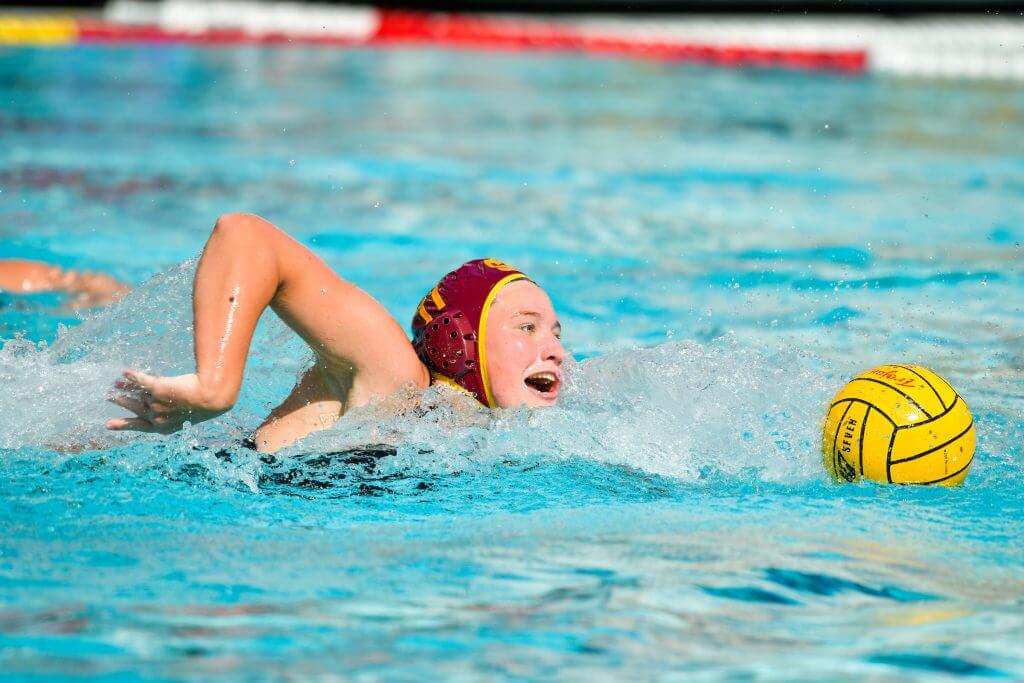Why Water Polo Players Should Join a Swim Team

Why Water Polo Players Should Join a Swim Team
Most water polo players aren’t eager to join a swim team to train during the offseason. But, swimming can actually be extremely beneficial for a polo player. Well-conditioned swimmers can better resist fatigue, are more agile in the water and are able to put more pressure on an opposing team.
According to former olympic swimmer and water polo coach Monte Nizkowiski, swimming is essential for conditioning water polo players.
“(Swimming competitively) is a must,” Nizkowski said in his book, Water Polo: Learning and Teaching the Basics. “You can’t improve your swimming ability on your own.”
Competitive swimming helps to improve strength, size, mobility and quickness. These are essential skills in becoming an outstanding water polo player, according to Nizkowski. He also thinks it is important for polo players to gain discipline and education from participating in a “coach-directed, scheduled swim season.”
According to polo player, former collegiate swimmer and coach of both sports, Laura Reynolds, a water polo player could sprint up and down the pool for up to 45 minutes during a game. Athletes with a competitive swimming background can more easily manage their energy in the water. They can resist lactic acid build-up and fatigue during a game and tire out an opponent by forcing them to move more quickly. It is also difficult for athletes to use the skills that they have been developing in practice when they are fatigued from swimming during a game, Reynolds said.
“You are less effective if you can’t get open for a pass… or you can’t execute a switch or a pick because you are exhausted,” she said.
Another benefit of swimming is that it gives polo players a chance to set concrete goals. Reynolds feels that it’s important for athletes to set individual goals with objective outcomes.
“(In water polo), coaches can see the same player and come to different conclusions about them,” Reynolds said. “In swimming, it’s the athlete against the clock. There is something to be said about controlling your own destiny.”
Reynolds said that one of the reasons that it is difficult for polo players to swim is that many coaches are not receptive to having them at swim practice. Also, swim seasons often don’t include the type of conditioning that is necessary for water polo players. Reynolds recommended that swim coaches embrace all athletes who are interested in joining their team.
“(Water polo players) can add color and energy to practices and meets. More importantly, they add depth and speed to the team,” she said.
Reynolds extended the same sentiment of open mindedness to polo players.
“Water polo players need to show up at swim team practices and embrace the challenges they set for themselves. A conditioned player is a positive contributor to a water polo team,” she said.
All commentaries are the opinion of the author and do not necessarily reflect the views of Swimming World Magazine nor its staff.



